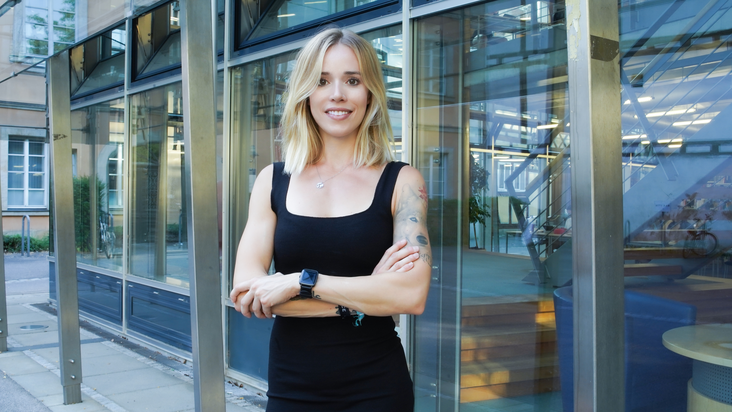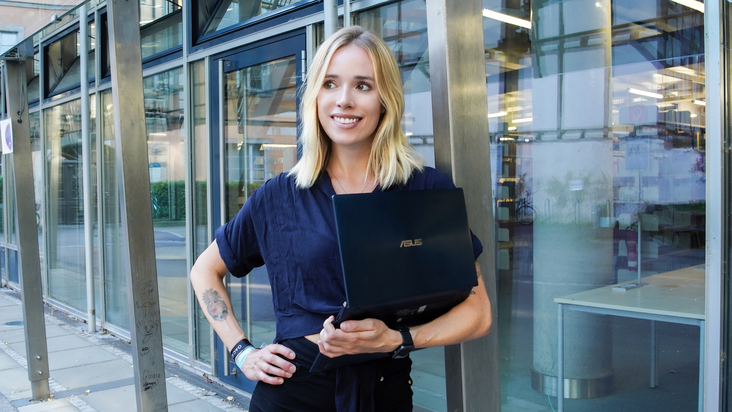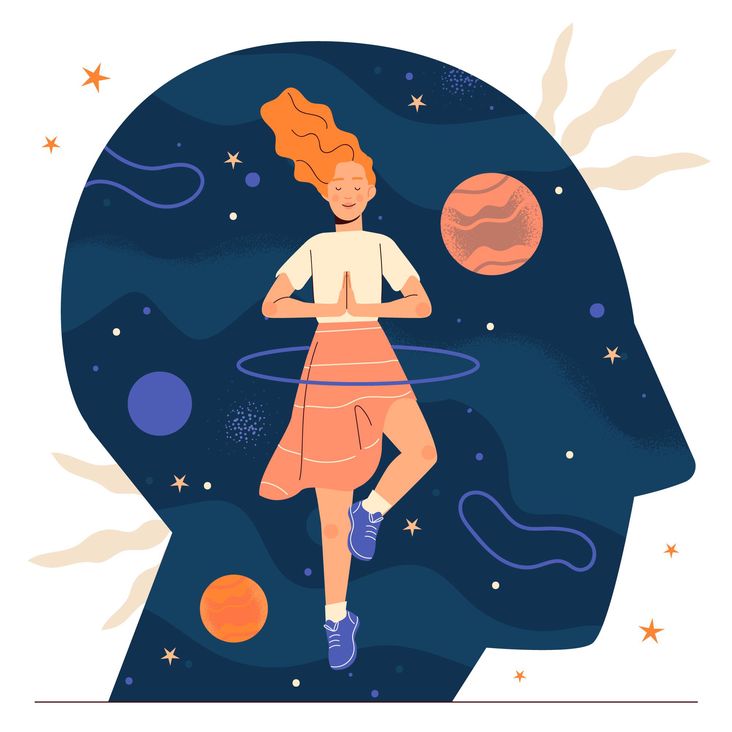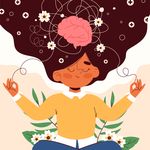Expert Advice: Strategies to Improve Your Mental Health
Sep 12, 2023 by Vreny Blanco · 8 min read · Interviews, Mental Health

Welcome to the sixth edition of our Ask the Expert article series on the 1Focus Blog. In the Fourth Edition, I spoke with psychologist and performance coach Kate Otte about the connection between the mind, fitness, and health. Today, we will discuss an important topic – mental health. For this, I had the honor of speaking with Kate again, and she shared some incredible insights that I can’t wait to share with you.
In this blog post, you’ll discover how your thoughts and emotions influence your actions and learn how to set and achieve your goals. You’ll also get practical advice on how to improve your mental health and how to manage self-doubt, anxiety, and stress effectively.
Get ready to be inspired!
Kate, how can we better understand ourselves?
By Learning to understand how we think.
Our behavior is the result of our feelings and thoughts, and our feelings, in turn, are the result of our thoughts or interactions with them.
Human behavior always has a purpose: It’s always about experiencing pleasure and, more importantly, avoiding pain. Therefore, what we feel in a specific situation and how we act accordingly is never determined by the situation itself but by our interpretation of it and our thoughts.
The thoughts that cross our mind in a situation depend, on one hand, on our internal representation of the situation, which in turn is based on our direct and indirect experiences and values and, on the other hand, on our physiological state. Here, once again, the importance of the interaction between the body and the mind becomes evident.
With the right approach, we not only learn to understand ourselves but also to direct our feelings and actions toward our goals and desires. This is what I work on daily with my clients.
Continuous self-reflection, identifying our strengths and potentials, seeking honest feedback, and perceiving and understanding our own emotions are critical, among other things. Through the constant repetition of these steps, long-term change and personal growth become possible, both physically and mentally. Especially on the path to “self-awareness,” it can be helpful to have the support of a well-trained and experienced coach. It should not be forgotten that as soon as you take responsibility for your life, you have the ability to shape it.

What can we do to improve our mental health?
- Take care of yourself and consciously nurture your physical and mental well-being.
- Learn to listen to your body and deal with challenges in a positive way (reframing).
- Build a solid social network; it will provide you with support, stability, and security.
- Set clear goals and continuously work on your personal development.
- Don’t hesitate to seek professional support – always remember: You are the most important person in your life!
- Learn to set clear priorities and boundaries to avoid burnout.
- Practice positive self-talk and celebrate your successes, no matter how small they may seem to you.
Understanding oneself is the crucial prerequisite for personal growth and success.
How can we overcome doubts and fears?
There are different ways to overcome doubts and fears, including:
- Strengthen ambivalence: For instance, by creating pros and cons lists.
- Highlight the relevance and urgency: Remind yourself of the importance and urgency of the decision, task, or overcoming the fear.
- Strengthen self-efficacy: Recall past successes in similar situations. How have others handled this situation?
- Reality check: Consider what could happen in the worst-case scenario. How bad would it actually be?
- Exposure: “Just do it!” – It may sound tough, but it’s still the most efficient way :)
What are the effects of the increasing use of digital technologies on our mental health?
Altered Communication Structure
Digital platforms provide the opportunity to connect with other people. At the same time, there is a risk of social isolation. Excessive online activity can lead to social isolation when personal interactions are neglected (e.g. when influencers are seen as “friend replacements”).
Cyberbullying
The anonymity of the internet can lead to cyberbullying and other forms of online stress, which can, in turn, negatively affect mental health.
Information Overload
The Internet offers easy access to valuable information about mental health, as well as information about therapy options and support services such as online coaching and self-help groups. However, this also comes with the problem of information overload. The flood of information we are exposed to daily can quickly lead to overwhelm. There is also the recurring question of the credibility of statements and offerings.
Comparison With Others
Comparing oneself with others on social media (especially with influencers) can lead to unrealistic standards and expectations, resulting in the development of issues such as:
- Distorted self-image.
- Distorted perception of reality (what is real, what is fake?)
- Social pressure: The overwhelming feeling of having to meet social expectations or the often unrealistic ideal of beauty.
Accessibility
Being constantly reachable is both a blessing and a curse. Especially in the context of work, the 24/7 accessibility provided by modern media can lead to stress, pressure, and overwhelm.
Sleep Disorders
Using digital devices before bedtime can have a negative impact on our sleep. The blue light from screens can interfere with the production of the sleep hormone melatonin and disrupt the sleep-wake cycle.
Internet Addiction
Excessive use of digital technologies, especially social media or video games, can lead to addiction.
Please don’t get me wrong – I’m a big fan of digital technologies and use the internet for several hours daily. The opportunities that technological advancement provides are fantastic and an integral part of our daily lives! However, what I want to emphasize is that when using digital technologies, especially the internet, we should proceed thoughtfully.
It’s important to set clear boundaries, not lose touch with reality, and always pay attention to the reliability of sources and critically question statements when seeking information.

How can one find a healthy balance between work and private life?
By:
- Setting clear boundaries.
- Prioritizing time.
- Utilizing flexible work options.
- Scheduling regular breaks.
- Learning to say no.
- Physically separating work and personal life.
- Prioritizing your own health (both mentally and physically).
- Practicing mindfulness.
- Creating balance.
- Learning to let go mentally.
It is important to continuously self-reflect and always prioritize your own health (both physically and mentally)!
How do you deal with stress?
I manage stress by:
- Efficient time management.
- keeping my goals in mind.
- Maintaining a clear overview of my tasks.
- Dividing my tasks appropriately.
- Tackling tasks one at a time: Prioritizing the important and urgent ones first, even if they are often the least pleasant.
- Taking regular active breaks.
- Exercising and taking short walks to clear my mind and recharge.
- I exchanged ideas with my boyfriend about how to share responsibilities.
- Realistically assessing my capacity.
- My motto at work is: Quality over quantity (e.g. when taking on new projects).
What do you do to recharge your energy?
Sports! Working out gives me an incredible boost in this regard. It helps me relieve stress and clear my head, which gives me a real energy boost every time! I also love walking! I usually come up with the best ideas while running outdoors – or on the walking pad.
Additionally, I take deliberate breaks during which I engage with other tasks or meet up with friends. Getting enough sleep and maintaining a healthy, well-balanced diet are, of course, also crucial factors! These elements, along with daily exercise, are essential for myself and my clients as a performance coach.
I get about 6.5 to 7 hours of sleep. After this amount of sleep, I feel rested and energized – too little sleep isn’t good, but too much doesn’t serve me well either! Important: The amount of sleep a person needs to feel fit and rested is highly individual!
Do you have any additional advice for the readers?
Develop self-awareness and constantly reflect on your goals, decisions, and behavior. Take responsibility for your life and always prioritize your physical and mental health – it is the essential foundation for all your successes!
Don’t be afraid to seek out professional help if you don’t know how to proceed in your individual situation and/or feel that you can’t bring a long-term change on your own! It’s about you, your quality of life, your well-being! You are the most important person in your life! Why do you invest so much in other things and so little in yourself? Take some time to think about it :)
As soon as you take responsibility for your life, you have the ability to shape it.
Conclusion
In this interview we discussed the importance of mental health and how it affects our well-being and development. The interview with psychologist and performance coach Kate Otte showed us how to better understand ourselves and improve our mental health. Self-reflection, clear goals, positive self-talk, and self-care are useful tools in this process.
The increasing use of digital technologies can have both positive and negative effects on our mental health. The Internet provides valuable information and support, but it can also cause stress, especially through overstimulation and comparison with others on social media.
Our mental health is critical to our well-being. By better understanding ourselves and developing healthy habits, we can significantly improve our lives. With professional help, we can recognize and make the most of our potential.

Acknowledgements
We would like to thank psychologist and performance coach Kate Otte for her insightful contributions to the topic of mental health. If you are struggling with mental health issues, don’t hesitate to contact her.




